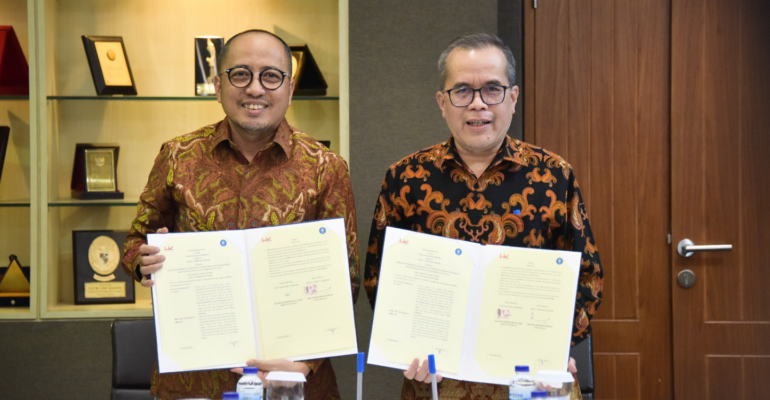Supporting Nature Preservation, IPB University Collaborates with PT Hutama Karya

In an effort to support nature conservation, IPB University collaborates with PT Hutama Karya. This cooperation began with the signing of a memorandum of understanding (MoU) in the Rector II Session Room, IPB Dramaga Campus, Bogor (5/7).
Vice Rector of IPB University for Global Connectivity, Collaboration and Alumni Relations, Prof Iskandar Z Siregar explained that this cooperation is related to environmental, social, and governance (ESG) aspects with nature-based solutions.
“The main focus is slope stability and elephant conservation, guarding their corridors despite the construction of toll roads. IPB University wants to learn this with an interdisciplinary approach,” he said.
Furthermore, Prof Iskandar said, IPB University also plays a role in many mining and reclamation projects, especially in stabilising slopes with vegetation.
He added, the ESG issue is a new opportunity for IPB University graduates to play a role, one of which is in calculating the carbon footprint.
“IPB University has also proposed mangrove planting because of its ability to store large amounts of carbon. An example of its application is on the toll road towards Soekarno-Hatta Airport which is surrounded by mangroves. This innovation is called Incubator Mangrove which is one of the works of the Professor of the Faculty of Forestry and Environment IPB University,” he said.
Prof Iskandar continued, green policy is also important to discuss in relation to sustainability.
“We want to practise it in the field, with PT Hutama Karya as an example for the community in every development. The hope is that this cooperation can be realised with synergy between infrastructure development, nature conservation, as well as increasing the competence of human resources of PT Hutama Karya through education at IPB University,” he said.
Meanwhile, the Operational Director I of PT Hutama Karya, Agung Fajarwanto, MBA said that the company currently accepts strategic tasks such as the construction of the Trans Sumatra toll road along 2,700 km, the Nusantara Capital Project (IKN), and the Trans Papua road project from Jayapura to Wamena.
“We have high expectations in environmental governance and want to realise innovation in the implementation of ESG. For that, we work with academics from various campuses,” he said.
Agung continued that the company has provided field laboratories and always receives theoretical input from academics. One of the focusses is the influence of the existence of toll roads on the stability of the slopes and their impact on the flora and fauna in Sumatra.
“Through this MoU, we hope to synergise with IPB University to complement our expertise. This cooperation is also expected to continue and produce useful applications and field findings,” he said. (dr/Rz) (IAAS/IAN)



